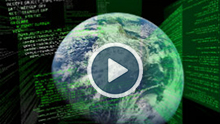As radical Islam and other challenges limit the hopes of the Arab Spring, a new Council of Europe-EU programme to improve democratic governance in Europe’s southern neighbourhood–with the full co-operation of partner countries in the region–is to be launched on 10 April.
High-level government representatives from Algeria, Egypt, Jordan, Morocco, Tunisia and the Palestinian National Authorities will meet Council of Europe officials and experts in Strasbourg for a series of workshops.
Radical Islam poses threats to stability in the region, as seen last month, when terrorists killed over 20 people at the Bardo Museum in Tunis. The 3-year South Programme II–carried out by the Council of Europe and funded by the European Union–will provide co-operation and technical assistance to promote good governance through the prevention of corruption and money laundering and the fight against terrorism, among other initiatives. Support will be given to new democratic governance bodies in partner countries, including legislative and policy advice.
Based on demand from partner countries, the programme will support justice reform and work towards more efficient justice in the Southern Mediterranean. It will support legal reform to ensure that fundamental rights such as freedom of expression are taken into account. The programme will contribute to the expansion of a common legal space between Europe and the Southern Mediterranean region through a progressive accession of countries from the region to relevant Council of Europe conventions and networks in key areas such as actions against trafficking in human beings, terrorism and corruption.
Council of Europe offices in Tunis and Rabat will help to implement and facilitate programme initiatives in Tunisia and Morocco and will ensure co-ordination among international donors implementing initiatives in the same area.
Introduction to the South programme (Video in french)


